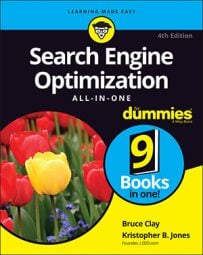If you use a hosted e-commerce site, you want to make sure you employ SEO techniques to get noticed. Many service providers make it easy for people use to set up an e-commerce storefront quickly. Online options for proprietors range from joining an online marketplace (like Etsy for retailers and Fiverr for those offering creative services) to building your own website.
You can run your online storefront on your own domain; some e-commerce platforms offer store owners design templates, easy wizards for inputting products, and functionality to accept credit card, debit card, and PayPal payments. These e-commerce content management systems come in two flavors: hosted and self-hosted. With a self-hosted e-commerce platform, you get software to build and manage your site, but you have to get your own web host. One popular self-hosted e-commerce CMS is Magento.
What you should know about SEO considerations of a hosted e-commerce solution (which means that the same company that you use to create and manage your website also hosts it) is a little different. The biggest difference affecting your SEO campaign if you’re using what’s sometimes called an e-commerce service system is a loss of flexibility — you’re limited to the constraints of the shopping cart software and the provided hosting.
On the upside, a hosted e-commerce platform is an attractive solution for small and mid-sized retailers because it gives you just one vendor to turn to for all website support. Hosted e-commerce platforms include Yahoo Small Business, Shopify, Squarespace, and Wix.
If you’ve got a site built with a hosted e-commerce service, read on: The tips below show you how to get the most SEO value out of your hosted online store.
It is possible to make a hosted store rank highly for certain keywords. You can modify things, such as the look of the site, the domain name, and some of the important page elements. When you’re researching hosted e-commerce solutions, check to see whether you have control over as many of the following as possible:
Domain name: If you want your store to rank in the search engines, you should use your own domain. Register a good domain name and then set up your store using the platform’s provided domain settings.
Title tags: Because the Title tag is a key indicator to the search engines of what your page is about, you want the ability to customize what shows up in your Title tags so that they are each unique, have an appropriate length, and contain the keywords you’re trying to rank for in the search engines. A good hosted e-commerce solution lets you edit your Title tags individually and manually.
Meta tags: A hosted platform may create Meta description and Meta keywords tags by default. You’ll want the ability to modify them as needed.
Custom URLs: Being able to control the URLs to include keywords, make sure that they’re not too long, and support your themed architecture is important for SEO.
Organization of products by category: For siloing (a way of organizing your content into themes through site architecture and linking), you want to be able to separate products into categories.
301 Redirects: You want to be able to put in place 301 Redirects, the best way to tell search engines that a page has been removed and replaced by a new page.
Robots text (robots.txt) file: Your robots.txt file instructs the search engine spiders which pages not to index and where to find your sitemap (a file that lists the pages in your website, linked so that spiders can easily navigate). An SEO-friendly hosted store will let you customize your robots.txt file.
Sitemap: An XML sitemap page that’s invisible to users but available to the search engines is critical to getting your site crawled and indexed by search engines. Check that your hosted e-commerce platform generates and links a proper sitemap.xml, listing every single URL on your site. If you choose to use a JavaScript-heavy template, the XML sitemap should allow for complete indexing of all pages.
Custom 404 Error page: Understand how your hosted store handles the 404 server status (the error code that means the page isn’t found) when a user tries to access a page that doesn’t exist. You want control over the content of the 404 Error page and where error pages may redirect.

